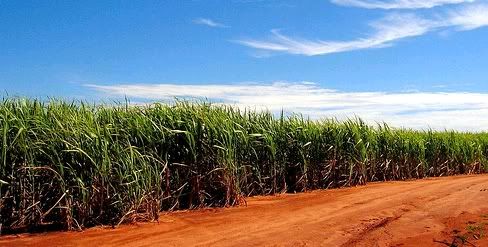Brazilian ethanol to replace 10% of world gasoline in 20 years - report

According to a study commissioned by Brazil's Ministério de Ciências e Tecnologia (MCT), the country will become a global exporter of ethanol capable of replacing 10% of world gasoline consumption by 2025.
The study [*Portuguese], carried out over a 2 year period by the Universidade Estadual de Campinas (Unicamp), had as its objective to analyse the viability of rapidly substituting a large amount of gasoline in the growing world market. In order to achieve this objective, the country would have to invest up to 20 billion reais (€7.3/US$9.5 billion) per year in production capacity and logistical infrastructures (such as dedicated ethanol pipelines) (two such infrastructure projects are already underway as part of a US$6.2 billion investment plan- earlier post).
According to Rogério César Cerqueira Leite, professor emeritus of Unicamp, the simulations show that the large initial investments will begin to see a return from the last 7 years of the 20 year period onwards. With government support, such an investment regime makes commercial sense, especially because it deals with energy - a sector in which many non-tangible but nationally important factors play a role (such as energy security).
Leite stresses that the bulk of the investments in production will have to come from the private sector, and that the government will contribute (mainly to infrastructure projects) via the Banco Nacional de Desenvolvimento Econômico e Social (BNDES) (Brazil's development bank).
Transpetro, the logistical branch of Brazil's state-owned oil & gas company Petrobras, was a partner in the study, because it will be the main actor investing in the ethanol pipelines which will stretch from the Center-East of the country to São Paulo.
If the basic investment scenarios presented by the report were to occur, Brazil's ethanol exports will skyrocket from today's 2.8 billion liters to 200 billion liters in 2025. The hectarage for biofuel feedstocks (mainly sugarcane) will jump from today's 5.6 million hectares to 30 million in the same period. "This represents less than 10% of the available arable land base. Our study shows that this hectarage can be used without invading forests or existing agricultural areas", explains Leite. Brazil currently has some 200 million hectares of degraded pastures, where agricultural crops can be planted without knocking down a single Amazon tree:
 biomass :: bioenergy :: biofuels :: energy :: sustainability :: ethanol :: sugarcane :: bagasse :: cellulosic ethanol :: biofuel exports :: Brazil ::
biomass :: bioenergy :: biofuels :: energy :: sustainability :: ethanol :: sugarcane :: bagasse :: cellulosic ethanol :: biofuel exports :: Brazil :: The projections are based on current production technologies. But the study points out that over this time horizon, Brazil will have acquired biofuel technologies such as enzymatic and acid hydrolysis, with which it will be possible to use cellulose waste streams for the production of ethanol. The main biomass waste stream - bagasse - is currently used efficiently for the production of carbon-neutral electricity and steam. But in the future, it will become a feedstock for cellulosic ethanol production. This will result in an even better energy balance for liquid fuels made from sugarcane. It will also reduce the required land area by up to a third.
"The United States are investing in this technology, because they do not have enough land to expand their ethanol industry." Cerqueira Leite adds that the alternative scenarios are based on the projection that enzymatic hydrolysis for the production of cellulosic ethanol will be commercially viable within 15 years time.
The current study analysed the capacity to expand Brazil's ethanol production potential in the North and Nordeste regions of the country. In a third phase, the ongoing study will analyse the potential for the state of São Paulo.
Crucial for the development of the Brazilian export-strategy will be to make sure that the country can guarantee a steady supply of biofuels to the world market. For this reason it will actively encourage and invite foreign investments in the sector and strengthen the institutional capacities to guarantee a secure investment climate.
More information:
Agencia Estado: Unicamp: governo estuda plano para exportação de álcool - Feb. 9, 2007.
Estadao: Governo faz plano de expansão do etanol para exportação - Feb. 10 2007.
International Herald Tribune (summary): Study: Brazilian ethanol can replace 10 percent of world gasoline in 20 years - Feb. 12, 2007.
 -------------------
-------------------
 Spanish company Ferry Group is to invest €42/US$55.2 million in a project for the production of biomass fuel pellets in Bulgaria.
The 3-year project consists of establishing plantations of paulownia trees near the city of Tran. Paulownia is a fast-growing tree used for the commercial production of fuel pellets.
Spanish company Ferry Group is to invest €42/US$55.2 million in a project for the production of biomass fuel pellets in Bulgaria.
The 3-year project consists of establishing plantations of paulownia trees near the city of Tran. Paulownia is a fast-growing tree used for the commercial production of fuel pellets.









0 Comments:
Post a Comment
Links to this post:
Create a Link
<< Home